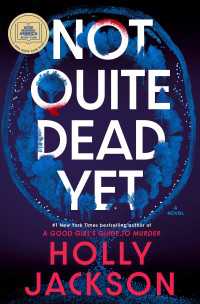Description
Charles Sanders Peirce (1839-1914) is likely the greatest philosophical thinker America has ever produced. His contributions to philosophy would inspire other American philosophers such as William James and John Dewey. Peirce's contributions, however, extend far beyond philosophy proper. Interpreting logic as the discipline that is devoted to the question of how one should reason, he saw himself first and foremost as a logician, one inspired by the desire to penetrate into the logic of things. This, more than anything, enabled him to do ground-breaking work in a great variety of areas, including several that were yet to develop. In part because of this, Peirce has been called the American Aristotle and the American da Vinci. It is precisely this attitude of wanting to penetrate into the logic of things, and to develop the tools for doing so, that keeps Peirce relevant today. The Oxford Handbook of Charles S. Peirce brings together thirty-four original essays on his work, showcasing state-of-the-art research in a broad variety of areas. Among other things, the Handbook touches upon phenomenology, logic, aesthetics, ethics, semiotics, physics, mathematics--and, of course, the tradition of pragmatism for which Peirce is well known as the founder, and which has enjoyed increased attention in recent years.
Table of Contents
PrefaceIntroduction, Cornelis de Waal A Note on References to the Primary LiteratureLife and Career 1. Peirce's Journey to the End of Inquiry: The Tenure of the Soul, Daniel L. Everett2. The Cosmopolitan Peirce: His Five Visits to Europe, Jaime Nubiola and Sara Barrena3. Peirce's Thwarted Career, Cheryl MisakPhenomenology and the Normative Sciences4. Peirce's Formal and Material Categories in Phenomenology, Richard Atkins5. The Vicissitudes of Experience, Nathan Houser6. Charles S. Peirce on the Inquiry into the Discovery of Ideals, Norms, and Values, Tiago Da Costa E. Silva7. The Aesthetic Imperative: From Normative Science and Self-Control to Somaesthetics, Richard Shusterman8. Morality and Ethics in the Work of Charles Peirce, James Jak?b Liszka9. Agapic Love and the Growth of Concrete Reasonableness, Juliana Acosta L?pez de Mesa and Daniel G. CamposLogic and Mathematics10. Why Study Logic?, Mark Migotti11. Peirce's Philosophy of Logic, Leila Haaparanta12. Peirce's Abduction and Its Interpretations, Ilkka Niiniluoto13. Peirce's Theories of generalized propositions, Frederik Stjernfelt14. Existential Graphs: History and Interpretation, Francesco Bellucci and Ahti-Veikko Pietarinen15. Peirce on Diagrammatic Thinking and Diagrammatic Representations, Chiara Ambrosio16. The Logic and Mathematics of Charles S. Peirce, Louis H. Kauffman17. Advances in Peirce's Mathematics, Fernando ZalameaPragmatism18. Pragmatisms?, Philip Kitcher19. Why Philosophers must be Pragmatists: Taking cues from Peirce, Cornelis de Waal20. Theory, Practice, and Deliberation: Peirce's Pragmatism Comprehensively Conceived, Vincent Colapietro21. Pragmatic Clarification: Contexts and Purposes, Mats Bergman22. Peirce, Perception, and Empiricism, Aaron Bruce WilsonMetaphysics23. Peirce on Reality and Existence, Robert Lane24. Scientific Pride and Metaphysical Prejudice: Ens Quantum Ens, Quantum Theory, and Peirce, Rosa Mayorga 25. Peirce on Kant's Refutation of Idealism, Gabriele Gava26. Peirce on Truth, Andrew Howat27. Peirce and Religion, Gary Slater28. A Science Like Any Other: A Peircean Metaphysics of Sex?, Shannon DeaScience and Semiotics29. Charles S. Peirce and the Feeling of Understanding: The Power and Limit of Science from a Pragmatist Perspective, Herman C.D.G. de Regt30. Peirce's Views on Education and Learning, Torjus Midtgarden31. The Philosophical Relevance of Peirce's Historical Studies, Tullio Viola32. Diagrams, Semiosis and Peirce's Metaphor, Tony Jappy33. Peirce on Biology: A Critical Review, Kalevi Kull34. Peirce's Universal Grammar: Some Implications for Modern Linguistics, Daniel L. Everett
-

- 洋書電子書籍
- Not Quite Dead Yet:…
-

- DVD
- 投稿 怨霊映像64 吠篇






